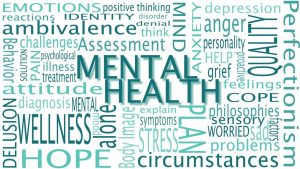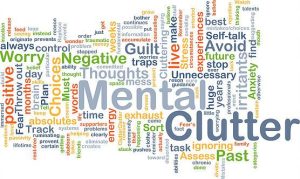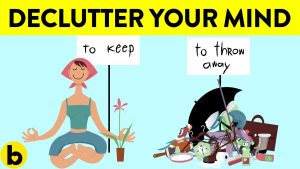
Introduction
In today’s fast-paced world, we are constantly surrounded by things—clothes, gadgets, papers, and more. The more we accumulate, the harder it is to maintain mental clarity and focus. The concept of minimalism has gained popularity as a way to combat this overwhelming sense of clutter. It’s more than just an aesthetic choice; minimalism can have a profound effect on our mental health.
Decluttering, the process of removing unnecessary items from your living and working spaces, has been shown to reduce stress and Increase Productivity. But what is it about getting rid of physical clutter that has such a positive impact on our well-being? This article explores the psychology of decluttering, the benefits of adopting a minimalist lifestyle, and how these changes can lead to a healthier, more peaceful mind.
What is Decluttering?
Decluttering is the process of simplifying your surroundings by removing unnecessary or non-essential items. It goes beyond just cleaning and organizing; it’s about intentionally letting go of the items that no longer serve a purpose or bring value to your life. The goal is to create a space that promotes peace, clarity, and a sense of order.
The minimalist lifestyle is closely related to decluttering. Minimalism isn’t about having as little as possible; it’s about focusing on what truly matters. By reducing distractions, we can focus more on the things that contribute to our well-being, like relationships, hobbies, and self-care.
Why Decluttering Affects Mental Health

Cluttered environments can have a direct impact on your mental health. Studies have shown that living in cluttered spaces can increase feelings of anxiety, stress, and even depression. When surrounded by disorganization, your brain has to work harder to process information, which can lead to mental fatigue and a decrease in productivity.
On the other hand, decluttering can create a more serene and peaceful environment that promotes mental clarity. When your space is organized, your mind feels less overwhelmed, making it easier to focus and relax. The psychological benefits of decluttering are immense, and they extend beyond just your physical space.
The Connection Between Minimalism and Stress Relief

One of the most significant benefits of decluttering is stress relief. In a world full of distractions and demands, it’s easy to feel stressed. However, when we remove physical distractions, it helps create a more calming and peaceful atmosphere. Less clutter means fewer things to worry about, which can directly reduce stress levels.
Additionally, minimalism encourages intentionality in how we spend our time and energy. It challenges us to evaluate what truly adds value to our lives. This practice can bring about a sense of accomplishment and peace, leading to reduced anxiety and increased satisfaction with our surroundings.
The Connection Between Clutter and Mental Health

1. Clutter and Stress
Living in a cluttered environment can elevate stress levels. Studies have shown that individuals in cluttered homes exhibit higher cortisol levels, the body’s primary stress hormone. This physiological response can lead to increased feelings of anxiety and tension.
2. Cognitive Overload
A disorganized space can contribute to cognitive overload, making it difficult to focus and process information. The constant visual stimuli from clutter can overwhelm the brain, leading to decreased productivity and mental fatigue. Nourishing Minimalism
3. Emotional Well-being
Clutter can negatively affect emotional well-being, leading to feelings of guilt, shame, and embarrassment. These emotions can strain relationships and diminish overall life satisfaction.
Boosting Productivity with Minimalism

A minimalist lifestyle doesn’t just help reduce stress; it also boosts productivity. When your space is organized, it’s easier to focus on tasks without distractions. For example, imagine working in a cluttered environment, surrounded by piles of papers and unused items. The chaos around you can make it difficult to concentrate on the task at hand.
On the other hand, when you declutter your workspace, you create an environment that encourages focus and efficiency. With fewer distractions, you can get more done in less time, leading to an increase in overall productivity. This is why many people who adopt minimalism report feeling more motivated and accomplished in their daily lives.
The Role of Mental Clarity in Decluttering
Mental clarity is one of the key benefits of decluttering. A cluttered space can make it difficult to think clearly or make decisions. It’s easy to feel overwhelmed when your surroundings are chaotic. However, by simplifying your environment, you allow your mind to breathe and focus on what truly matters.
Decluttering allows your mind to shift from a state of overwhelm to a place of clarity. This mental clarity can help you make better decisions, reduce mental fatigue, and increase your overall well-being. With a clear mind, it’s easier to handle challenges and stay focused on your goals.
Decluttering Tips for a Healthier Mind

If you’re ready to experience the benefits of decluttering, here are a few simple tips to get you started:
- Start Small – Begin with a small area of your home, like a desk or a drawer. Focus on one space at a time to avoid feeling overwhelmed.
- Sort and Prioritize – Sort items into categories: keep, donate, or throw away. Prioritize keeping items that serve a purpose or bring you joy.
- Be Intentional – Adopting minimalism is about making intentional choices about what you keep. Don’t hold onto things just because you feel obligated.
- Create Systems – Organize your space in a way that makes sense for you. Create systems that are easy to maintain and help keep clutter from building up.
- Embrace the Process – Decluttering isn’t a one-time event; it’s an ongoing process. Make it a habit to regularly review your belongings and let go of what no longer serves you.
Minimalism Improves Mental Health in the Long Run

Adopting a minimalist lifestyle is not just about decluttering physical space; it’s about adopting a mindset that values simplicity, clarity, and purpose. This mindset can lead to long-term improvements in mental health.
By focusing on what truly matters and removing distractions, you create space for peace, creativity, and self-care. Over time, the practice of minimalism can lead to reduced stress, improved emotional well-being, and increased happiness.
Moreover, embracing a simpler lifestyle can foster healthier relationships. When you focus on quality over quantity, whether in your possessions or interactions with others, you start to prioritize what truly brings joy and fulfillment.
How Decluttering Enhances Mental Health

1. Reducing Anxiety
Decluttering can lead to a more serene environment, which may help reduce feelings of anxiety. A tidy space promotes relaxation and a sense of calm, contributing to improved mental health.
2. Improving Focus and Productivity
An organized environment minimizes distractions, allowing for better concentration and efficiency. This enhanced focus can lead to increased productivity and a greater sense of accomplishment.
3. Promoting a Sense of Control
Taking charge of one’s environment through decluttering can foster a sense of control and empowerment. This feeling can combat helplessness and boost self-esteem.Allure
4. Facilitating Mindfulness
The process of decluttering encourages mindfulness by prompting individuals to reflect on their possessions and prioritize what truly adds value to their lives. This reflection can lead to greater self-awareness and contentment.
Conclusion
Decluttering isn’t just about cleaning your house; it’s about cleaning your mind. The psychological benefits of decluttering and adopting a minimalist lifestyle are undeniable. By creating a more organized and intentional environment, you can experience reduced stress, increased productivity, and improved mental health. Remember, the process of decluttering doesn’t need to be overwhelming. Start small, be intentional, and allow yourself to embrace the peace that comes with simplicity.
If you’re ready to take control of your space and improve your well-being, start decluttering today. Your mind—and your environment—will thank you.
Call to Action (CTA):
Ready to declutter your life and embrace a minimalist lifestyle? Start by organizing your space and experience the mental health benefits of a clearer, more intentional environment. Visit Pressmaverich.com for more tips and guidance on how to begin your Decluttering Journey today!
Anchor Text Suggestions
- Exact Match: The benefits of decluttering for mental health
- Partial Match: Decluttering tips for better mental clarity
- Branded: How minimalist lifestyle improves mental well-being










